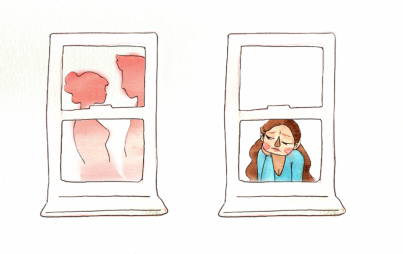
Read more stories from Ravishly's special Conversation series on marriage here. Have your own perspective to add? Email ravishly@ravishly.com.
My husband and I went through several drafts of our wedding vows, but none of them included a promise to “forsake all others.” We have been polyamorous since we met, meaning that we sometimes have romantic or sexual relationships with multiple partners. One of my favorite definitions appeared on Offbeat Mama: “believing that love does not have to be limited to one partner any more than it would have to be limited to one child or one friend.” Marriage was never about exclusivity to us, because we don’t view love as a finite resource.
What is marriage about to us? What did we vow to do? We promised to be partners in life; to build a home and a family together. To love and stand by one another. To encourage, comfort, and protect each other. To live and laugh together. To share the beauty we find in the world.
None of those things require that we stop dating other people. I don’t need to know that I am the only person he laughs with, and it doesn’t harm him when I share beauty with other people. Marriage isn’t about shrinking our worlds, it’s about growing them. How can we help each other grow?
Many marriages suffer from unspoken expectations and resentments. It is extraordinarily difficult to be all things to someone; to fulfill every need they have without losing ourselves. We put pressure on ourselves and our partners to be our ‘everything,’ which often results in disappointment and settling. Polyamory doesn’t settle. Polyamory looks for the unique connections we feel with the different people we meet, and gives us what we need from a variety of sources. This can range from the shallow (“Hey, I really don’t like that TV show — can you wait and watch it with her instead?”) to the significant (“I know you need to explore this element of your sexuality, but I am not comfortable participating. I’m glad you have someone you can share that with.”). To poly people, it is a natural way of building the relationships we need.
What is “natural” anyway? Monogamy originally developed as a way to ensure the rightful inheritance of property. Limiting sexual partners was the only way to feel confident about who had fathered which children and thus whose land and goods would be passed down. Fortunately, we have developed contraception since then, and our culture has evolved (there are many married couples who are not attempting to conceive for a variety of reasons). Why cling to this ancient definition of marriage when it creates so much conflict? Why not let it evolve with us?
When watching popular films and TV shows, I am constantly struck by the plot’s reliance on monogamy to create and escalate drama. Oh no, he loves two different women! How will he choose? Oh no, she kissed another man — their relationship is doomed. Over and over, a clear answer to these issues is a trusting, communicative polyamorous relationship. But that is never even raised as a potential solution, because we are so mired in the social constructs of monogamy.
Is polyamory easy? Heck no, but neither is monogamy. They both require trust and communication, and sometimes humans aren’t very good at those things. But the first concern often raised by monogamous people is one of jealousy. “I could never share my husband! I don’t want to picture him with some other woman.” Any poly person will tell you that jealousy is usually a result of underlying insecurities. Deep down, we often don’t feel attractive enough, smart enough, funny enough — we worry that we are secretly unlovable. Poly situations bring out these emotions in confusing ways, and it takes hard work to identify and address them (check out Franklin Veaux’s excellent site More Than Two for insightful essays and helpful tips). Once you do that work, once you finally feel “enough,” you’d be surprised at how much easier it is to feel happy when your partner is happy.
Or you might not. Not everyone is cut out for polyamory, just like not everyone is cut out for monogamy. There is no “right” way to build a happy and satisfying relationship. Why not expand our notions of “marriage” then, and let each couple discover the right way for them?







